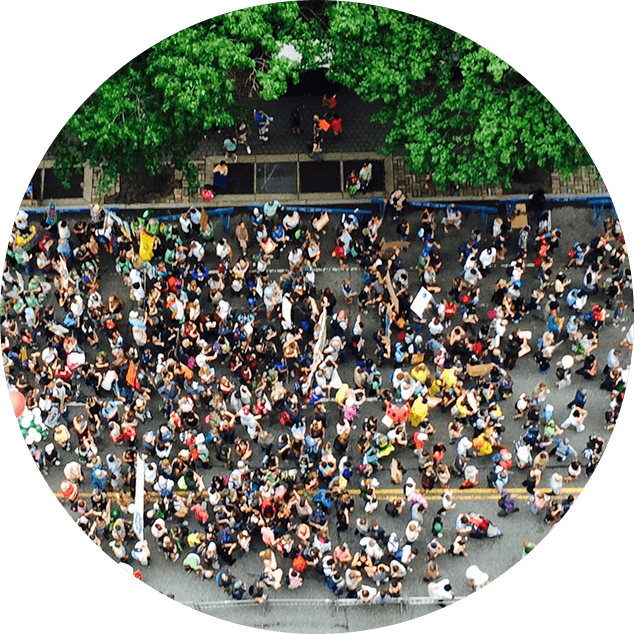
Choose
Action.
Racial inequality is the inescapable reality of America. It didn’t begin with us, but it can end with us.
If we choose to act.
This ever-growing collection of resources, intended to shine a light on inequality, highlight bias, spark dialogue and partner with others for collective action, will help us more clearly see the complex problems we face – and face them together. And guide us along the journey of transforming equality from a dream to a reality. Together we can make real lasting change when we actively work to prevent, address, and rectify it—individually and collectively. Let’s get started.
Get Started
Learning about race can be hard. Talking about race can be even harder. But it is a necessary step to increase our personal understanding and enable our collective action towards creating the world in which we want to live.

Read
Investing time to understand both historical and present-day experiences of Black people in America, including topics like systemic racism, and to learn about the challenges currently facing the Asian American community cultivate empathy that can be translated to action.

Watch & Listen
Ensuring your media and entertainment: television, movies, music and podcasts include diverse voices is an easy, excellent way to help you (and others) become more knowledgeable about equality, justice and inclusion and become more aware of implicit bias.

Donate
Tackling tough issues requires resources. Choosing to contribute to efforts that advance equity and equality are surefire ways to enact change and aid those in need.

Engage
Being a passive supporter of equality is not enough. When good intentions turn into tangible actions, both big and small, change occurs on a larger scale. Learn how to take action as an ally, advocate, activist and an anti-racist.
The views expressed in the included resources do not indicate the author’s endorsement of P&G and likewise, do not indicate P&G’s endorsement of the views of the authors.
Our History
For years we have put a spotlight on bias and inequality to spark dialogue that leads to understanding and action. And we’ve made equality a priority across our brands and our global operations. But that is not enough. More is needed. Now.
P&G and our brands are stepping up our ongoing efforts to advance equality for all people, and especially, right now, for Black and Asian Americans who face racism, bias, and brutality (read more here).
Civic Engagement
Communities grow and change as a result of individual commitment and collective action. No one can do it alone. Here are some ideas on how you can get involved:










